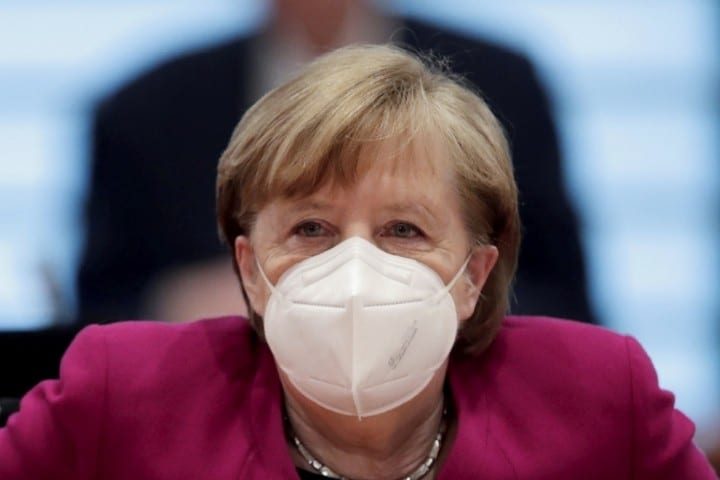
A year ago, Christians worldwide headed into the Easter weekend, the most sacred of the Christian holidays, celebrating the resurrection of Christ, facing strict COVID-19 mandates that kept houses of worship closed and festivities canceled.
Today, while many U.S. states are slowly starting to lift mask mandates and allow Americans to return to some sense of normalcy, warnings of a “third wave” of rising virus infections caused by alleged mutating COVID-19 variants have forced many European countries, particularly England, France, Germany, and Italy to reintroduce oppressive lockdown measures.
On March 23, German Chancellor Angela Merkel announced a severe, five-day shutdown over the Easter weekend, April 1-5, to combat a spike in coronavirus cases. As of April 1, the Robert Koch Institute reports more than 24,000 new cases in a country where 11.6-percent of the population is vaccinated. These data appear to be driving Merkel’s decision to call for once again shuttering most businesses, as well as imposing bans on gatherings of more than five children over the age of 14 from two or more households. Grocery stores would be permitted to open on one day only, Saturday, April 3.
The German people have been enduring various levels of lockdowns since mid-December. The country will continue with “general restrictions,” including mask-wearing and social distancing, expected to remain in effect until April 18.
In a stunning U-turn on Wednesday, March 24, following massive community revolts in major German cities such as Berlin and Munich, Merkel walked back her decision. In a public statement 24 hours after her initial announcement, Merkel apologized for complicating issues over closures deemed unrealistic by state premiers. Business owners and church leaders were frustrated they were not consulted about the new policies.
“I deeply regret this, and I ask all citizens to forgive me,” said Merkel in a press conference on Wednesday. Merkel’s statement was perceived by local media as “highly unusual.” According to DW News, the proposal was unexpected and many didn’t see it coming, as Merkel’s style is more of “a moderator, and she likes to forge consensus” rather than discord or disunity.
Merkel, who is not known for her soft leadership, repealed her mandate that designated Thursday-Saturday before Easter “rest days,” meaning businesses would not be open. She stated the decision was “singularly and alone” her mistake.
The Independent’s Adam Forrest quoted a Christian Democratic Union (CDU) leader at a press conference on Wednesday, who said, “A mistake must be called a mistake, and above all it must be corrected.”
Merkel’s reversal comes in the wake of regional leaders questioning the hastiness of the latest lockdown decision, thus permitting businesses to operate normally on the days leading up to Easter, even though many will close per the regular holiday schedule on Good Friday, Easter Sunday, and Easter Monday.
Breaking today, April 1, however, are reports that Merkel may have made a second U-turn. According to Fox News, the chancellor said in a video address, “There needs to be a quiet Easter festival. I urgently ask you to refrain from all non-urgent travel (and) that we all consistently follow the rules.” Her message is not clear as to the extent of the most recent restrictions.
Merkel also asked citizens today to take into account “the strain that nurses and doctors are under as they care for a rising number of COVID-19 patients and help them by respecting social distancing and other rules over Easter.”
As of January 2021, Germany has reported an upward of 2.8 million COVID-19 cases and 76,543 deaths, still less than other European countries with a similar population.
Since so few media outlets are covering what is happening in Germany, it is difficult to know the most recent status of the lockdowns. Regardless, the possibility of Germany lifting its bans could signal a change of course for other countries plagued by horrendous restrictions such as France, Britain, and Italy.
Citizens of certain regions of France, for example, are not allowed to travel outside their region unless they have a “compelling reason.” Schools in these areas remain open, but people are not allowed to “exercise outdoors within a 6.2-mile radius of their homes,” and must adhere to nightly 7:00 p.m. curfews.
Is it working for them? Are these restraints curtailing the spread of COVID-19? Merkel would do well to look to her Scandinavian neighbors for responsible answers to this treatable virus that her government is essentially using to punish its citizens.



